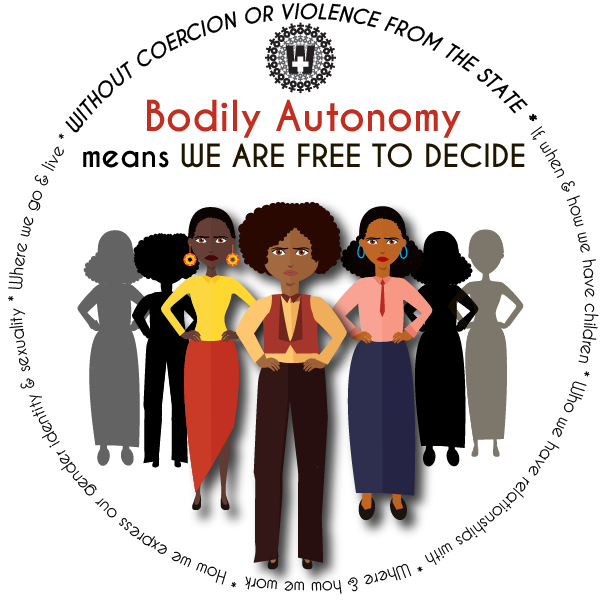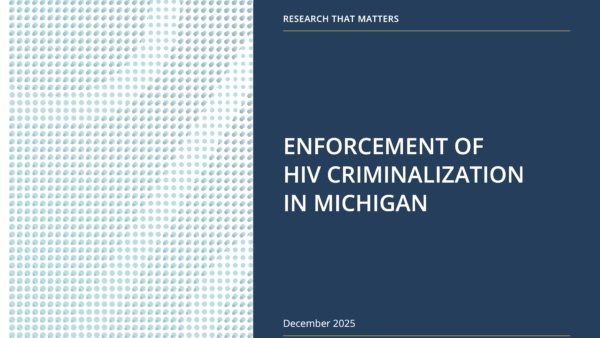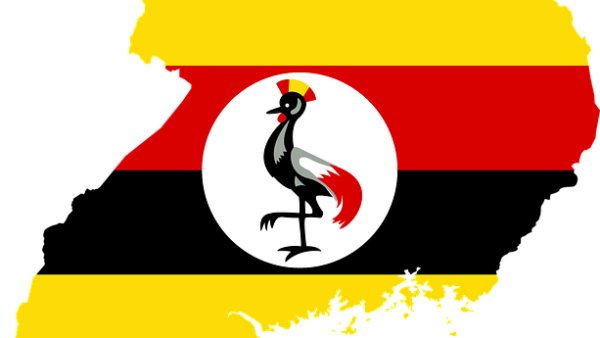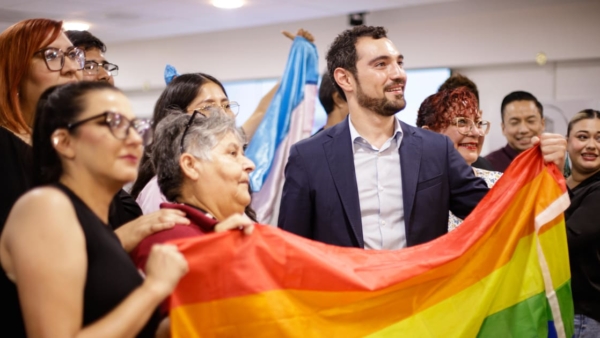
Bodily Autonomy: A Framework to Guide Our Future
Download the printer-friendly PDF version.
Watch the recorded webinar here.
Bodily autonomy is the simple but radical concept that individuals have the right to control what does and does not happen to our bodies. When we have full bodily autonomy, not only are we empowered to make decisions about our health and future – without coercion or control by others – we also have the support and resources needed to meaningfully carry out these decisions.
The concept of bodily autonomy is central to Positive Women’s Network – USA’s vision of a world where all women and girls living with HIV can lead long, healthy, dignified and productive lives, free from stigma, discrimination, and violence in all forms. In this era of increasing surveillance and political repression, hate-fueled violence, and attempts to further restrict reproductive rights and freedom of movement, we assert the fundamental rights of all people, and in particular for women and folks of trans experience living with HIV, to control our bodies and futures. When women and girls living with HIV are free, all of us will be free.
In the U.S. context, the bodies, sexuality, reproduction, and movement of women of color have been controlled and policedfor hundreds of years, often violently and at a great cost to our rights. Today, for women and girls living with HIV, who areprimarily from communities of color, HIV stigma, misogyny, transphobia, and racism intersect to magnify attacks on our rights from all fronts. Yet we know that our human rights should never be conditioned on HIV status, race, ethnicity, sex, gender expression or identity, or any other aspect of who we are.
Bodily Autonomy Means:
Freedom from all forms of state violence.
Women and girls living with HIV deserve a world where our bodies are not threatened by state violence and brutality, and where our physical safety is protected.
This includes:
- No profiling or harassment by law enforcement based on actual or perceived race, housing insecurity, immigration status, gender expression, actual or perceived engagement in sex work, or disability.
- Not being subject to surveillance, confinement, or detention by police or immigration enforcement.
- Living in communities free from police occupation.
- Freedom from state-sanctioned vigilante violence rooted in bigotry, prejudice, and stigma.
- Freedom from criminalization based on HIV status.
- Living in communities safe from environmental hazards.
- Respect and protection for indigenous rights, land, and culture.
Ability to control our labor without exploitation, harassment, or policing.
All women and girls living with HIV deserve to control and be compensated fairly for our labor.
This includes:
- Earning a living wage and receiving equal pay, without discrimination or coercion.
- The ability to take time off from work without fear of retaliation or losing our jobs, including paid sick leave, family leave, and disability leave.
- The right to organize in our workplaces to leverage better wages, benefits and working conditions, including forming or joining a union.
- Those of us who engage in sex work, which is a form of labor, should be able to do so safely and without criminalization, with access to the support and resources we need to stay healthy, and without fear of violence, stigma, or harassment.
- The ability to work without losing benefits, like health care coverage and supplemental income, that may be needed to maintain a decent quality of life.
Freedom to migrate and move within and across borders.
All women and girls living with HIV deserve to travel and live in a place that is safe and welcoming, regardless of immigration status or religion.
This includes:
- The right to seek refuge and asylum from conditions that are physically, economically, or otherwise insecure or unsafe.
- Staying together as a family without fear of losing a parent, child, or loved one to deportation.
- The right to return to our country of origin if we choose.
- The right to move around freely, without fear of profiling, detention, or harassment based on perceived immigration status.
- The ability to enjoy the same legal rights and protections as other members of society, without regard to immigration status or previous contact with the criminal justice system.
- The ability to access education, employment, healthcare and other opportunities in our country of residence, regardless of legal status.
- The right to accessible, culturally and linguistically relevant public services and benefits without discrimination or government reprisal.
Freedom to express our gender and sexual orientation in a way that affirms who we are.
Women and girls living with HIV deserve to live authentically, and to express our gender and sexual orientation freely.
This includes:
- The ability for our bodies to exist in public in a way that is comfortable for us, without being subject to homophobic or transphobic harassment, threats, or violence.
- Recognition of our gender identity by the state and all social, political, economic, and community institutions with which we interact.
- Health care responsive to people of all genders, and the employment opportunities, public benefits, and services necessary to thrive with dignity.
- Support, respect and protection for the relationships and families we form.
Freedom to choose whether or not, when, and how to form families and raise children.
All women and girls living with HIV deserve to decide for ourselves whether or not, when, and how we will form families and raise children, regardless of age, income, disability, gender identity or expression, or sexual orientation.
This includes:
- Freedom from coercive sterilization or otherwise being pushed toward not having children.
- Non-stigmatizing, accurate information and care for women living with HIV considering pregnancy, while pregnant, and during and after labor.
- Access to high quality and affordable prenatal care and assisted reproductive technologies, including gender-affirming reproductive care for people of trans experience who want to become parents.
- Respectful, non-stigmatizing support and resources for young parents, single parents, and those parenting in other chosen family arrangements.
- The right to maintain family ties through custody, visitation and/or reproductive choices for incarcerated women.
- Access to the full range of reproductive health care options, including birth control and abortion services, regardless of income.
- The ability to raise children in a healthy environment, without fear they will be subject to violence or discrimination
Resources, tools, and ability to make empowered and informed decisions about sex and relationships.
All women and girls living with HIV deserve to control our sexual lives, and should have the resources we need to support pleasurable and healthy sex and relationships.
This includes:
- Accurate, affirming, and non-stigmatizing information about our bodies; the physiological effects of living with HIV and HIV treatment; and the science of HIV transmission, including the scientific consensus that an undetectable viral load prevents transmission.
- Freedom to decide whether or not, how, and to whom we disclose our HIV status, without fear of violence, discrimination, or criminal penalties.
- The right to enjoy sex free from fear of HIV criminalization.
- Comprehensive sexual education, which is evidence-based sexual health information that is age appropriate, culturally relevant, and medically accurate.
- Access to pregnancy prevention and STI prevention information and tools which can be used, if needed, without a partner’s knowledge or acquiescence.
- Holistic, trauma-informed sexual and reproductive health care that includes gynecological health screening, fertility treatment, adoption support, and family planning services.
Access to the care and services necessary to keep our bodies, minds and spirits healthy and whole.
All women and girls living with HIV deserve to receive care and services that support holistic wellness – emotionally, physically, psychologically and spiritually.
This includes:
- Affordable, accessible, trauma-informed and culturally-competent health care, including gender-affirming health care and hormones.
- The right to refuse medical care that does not affirm us or make us feel whole.
- Adequate nutrition and food security.
- Freedom to practice our faith without fear of harassment, discrimination, or violence.
- Safe, affordable, and stable housing.
- Mental, emotional, and spiritual support services.
- Access to harm reduction programs, safe injection sites and equipment, and overdose prevention resources for people who use drugs.









